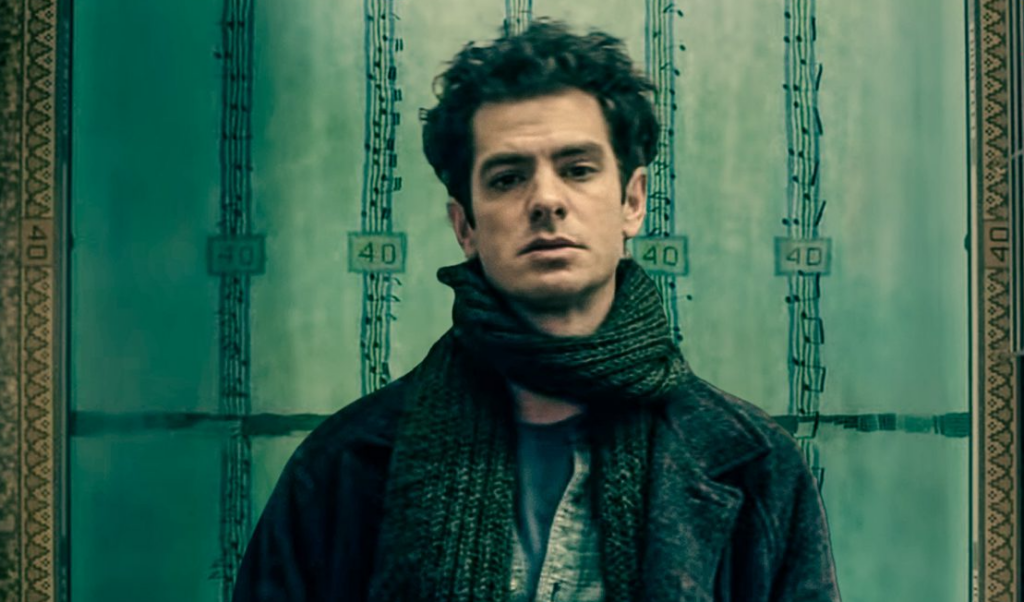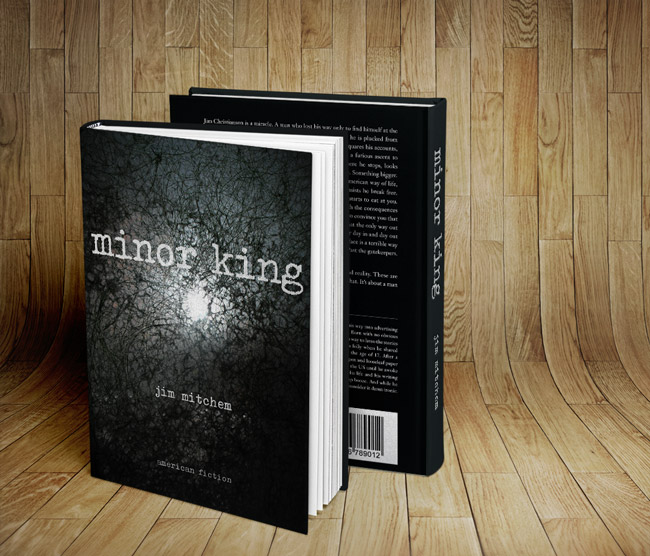
As a boy, I was constantly told that I wasn’t special. That I needed to get in line with everyone else and follow the rules. I failed miserably at this. My father was a master carpenter and could build anything he laid eyes on. He was frustrated that all I wanted was to create fantasy worlds under the ocean or in outer space. In notebooks. With colored pencils.
I was never encouraged to use my imagination, so I gained a reputation for telling “tall tales” which morphed into lies in my teens when we moved three times during my high school years and I kept having to start over. After barely graduating, and with no discussion of college, I joined the USAF. During basic training, they extracted my imagination and placed into a vacuum-sealed jar which they kept locked in a vault in San Antonio. And for four years, I replaced my imagination with drinking. Despite the honorable discharge, I feel like I failed my country because my heart just wasn’t into it. I didn’t belong there. And so after my enlistment was up, I tried keeping one foot in the “real” world, and one in a place that I loved since childhood—my imagination.
Except, I failed at the “one foot in one place and one foot in another” thing. And so within a year of my discharge, I hit the road in a Greyhound bus out of Texas and drifted. Just me and a suitcase that contained a couple pairs of jeans, some socks and underwear, a few tee shirts, an electric razor, and a dozen spiral notebooks bound by elastic.
In these notebooks I’d write my dreams, stories, poems, and ideas. Wherever I’d go, I’d latch onto people and make up stories to gain favor with them. I loved meeting people. My interactions were never malicious, as I treated everyone with politeness and respect. But deep down, I knew they were all just temporary. And therefore, expendable. Then I’d leave with new experiences and people to put in my head–and never return.
I took odd jobs wherever I landed, but eventually the drinking took over and the money ran out. I was in pure survival mode for a while. Things got dark. My drinking controlled me. I was hungry. And eventually, hopeless. It was 1990 in New York City—a remarkable place filled with fascinating people, but certainly not the shining bastion of pop culture capitalism that it is today. It was rough back then. And mean for people like me. People who drifted. Artists who were lost.
1990 New York City was also the backdrop of the movie Tick, Tick… Boom! about playwright Jonathan Larson’s struggle to find his footing not only on Broadway, but in the world around him. Larson would go on to write the long-running hit musical Rent, but died before opening night in 1996.
Jonathan Larson was a few years older than me in 1990, but watching this movie brought me back there. Hard. Andrew Garfield plays Larson in the film, and he’s amazing. He absolutely captures the struggle of an artist attempting to conform to society while staying true to his art. And also dealing with creativity that won’t stop gnawing at you. Between Larson’s story and Garfield’s performance, this movie moved me. I identified.
Back in 1990, one of my jobs was “focus group taker.” A friend at the headhunting firm where I worked (and failed miserably at selling people on jobs that didn’t exist as a way to build a database to share with other headhunters who would then shop these folks all over the city) put me in touch with a woman who facilitated focus groups for ad agencies. After my first two focus group sessions, she began slotting me in wherever and whenever she could. It turned out I was pretty useful. All I knew was that they usually paid $50 and had free Ray’s Pizza. Dinner and some beer money for two hours of my time? Yeah, I was all over that.
One time, I was in a focus group about an ice cream company that specialized in cakes. When none of my peers stated the obvious, I did. The facilitator shot a look in my direction and asked, “Are you in advertising?” (It wasn’t until years later did I learn copywriting even existed.)
Focus group after focus group, these people thought I was some kind of genius. And this was amazing to me. I was simply stating the obvious about things. From a different perspective, of course. Way different.
In the movie Tick, Tick… Boom!, Larson is pressed to come up with money to help fund his play, so his best friend invites him to be part of a focus group. He shows up late, dresses like a dreg, and is clearly skeptical of the whole thing. He just wanted the payout (and probably the pizza.) But then the facilitator asks the group what they think of when they hear the word “America” and things take off. Exactly like it used to happen with me.
After a couple of people in the group reply with answers like “George Washington” and “Abraham Lincoln,” defeatedly, Larson replies “Grover Cleveland” – understanding the thought-pattern of the others. The brainstorm continues down this algorithmic path for a few more answers when Larson looks around the room and finally says, “An open road at sunset. Wind in your hair. Nothing in your way except, horizon.” And the room goes quiet as jaws fall open. Then the facilitator compliments Jonathan and then the others on the panel start shouting “the sun” and “the sunrise.” But of course they do.
Because that’s exactly what happens. Or at least it did for me. In this scene, Larson dreams about leaving his life of a struggling artist behind and finally be accepted for his creativity instead of constantly rejected. He dreams of becoming part of the corporate machine complete with a 401K, a doorman, and an apartment with a view.
But then the facilitator reveals the product, which turns out to be harmful to people, and the dream is shattered. So Larson returns to his love, writing, and continues scratching and clawing to bring his art to life.
I think it would be easy to dismiss Tick, Tick… Boom! as a musical about a musical, because there’s definitely a lot of singing in it. And while I wasn’t particularly drawn to the musical parts of the film, the core idea for me was the struggle of an artist in a world that doesn’t open its arms to artists.
New York City, 1991, I am blessed with an epiphany and my desire to drink is lifted. I get sober and do my best to get my life together. Which means giving up on my silly dreams of using my imagination to make my way in the world and get in line with everyone else.
In the late 90s, after a few years working as a logistician for a direct marketing firm (that bilked people of donations to police and fire organizations around the country), I’d had enough. There was something inside of me that, despite making good money (at the evil job), gnawed at me. Constantly. I’d stopped writing. My sobriety was being pushed to the limit because of a job. That’s when my wife and I decided I should go to college to find something I could be happy doing. I was 32. I stumbled upon copywriting during a whirlwind 10-months when I took 63 credits at 3 colleges concurrently in order to graduate.
I fell in love with copywriting in that first class. Thinking this way was as natural to me as swimming. And to think I could use my imagination at work! Writing! And getting paid for it! It was all a little unbelievable at the time, but it was right there in front of me just waiting for me to seize it. All I had to do was … become part of the machine.
Amid my first year as a junior copywriter in my mid-30s, I realized that writing ads wasn’t enough to sate the thing that continued to pace inside me. But I had a daughter now. And another on the way. And there was a mortgage. And daycare. And .. I was trapped. Sure, I was doing great work and solving complex problems with award-winning writing/thinking, but it left me unsatisfied creatively. I wanted more. So I began writing again. When blogging became a thing in the mid 00s, I used my blog to unleash my thinking, poetry, and stories on the world. And it was good. It didn’t matter whether anyone paid attention, I was giving my art life. It was empowering and hopeful. And it made selling out to the machine more palatable.
In 2015, I self-published my first novel, Minor King. Which is a semi-autobiographical story about an artist struggling with making it in the “real” world while being true to the beast of creativity that gnaws and paces within him. For most people, the ending is tragic. For me, it was liberating.
There’s a scene in Tick, Tick… Boom! where Larson learns that the play he’d been writing for eight years was not picked up by any producers. His agent breaks it to him by lauding him with praise and telling him how the city’s top producers … can’t wait to see what he does next.
Dejected, Larson asks the agent what he’s supposed to do now?
“You start writing the next one. And after you finish that one, you start on the next. And on, and on, and that’s what it is to be a writer, honey.”
Because it is.
Please understand, I realize that I am nowhere near Larson’s class of artist. But this movie helped me realize that I have been an artist all my life. And that my struggle was the same as his. And likely the same for every other artist.
Larson died at 35. I’m in my 50s. The struggle to manage the “real world” with “the beast in my chest” continues. Minor King may not be my best work when all is said and done, but for now it’s the best I’ve got. Because there’s more. Much more. Ideas swirl around me today as thick as they’ve ever swirled. Which is both exciting and awful. I still have a mortgage, after all. And while I’m grateful to pay it, live comfortably, and help my family pay for the things we need, there’s a part of me that could likely be a nomad who needs but a pen and notebook.
The world is relentless and feasts on dreamers.
See Tick, Tick… Boom! on Netflix. If you’re an artist, it will move you. If you’re not, you’ll gain an understanding of what artists are up against.

Rithik Valsan
Feb 16, 2022
So well put. Thank you for this.I couldn’t relate more !